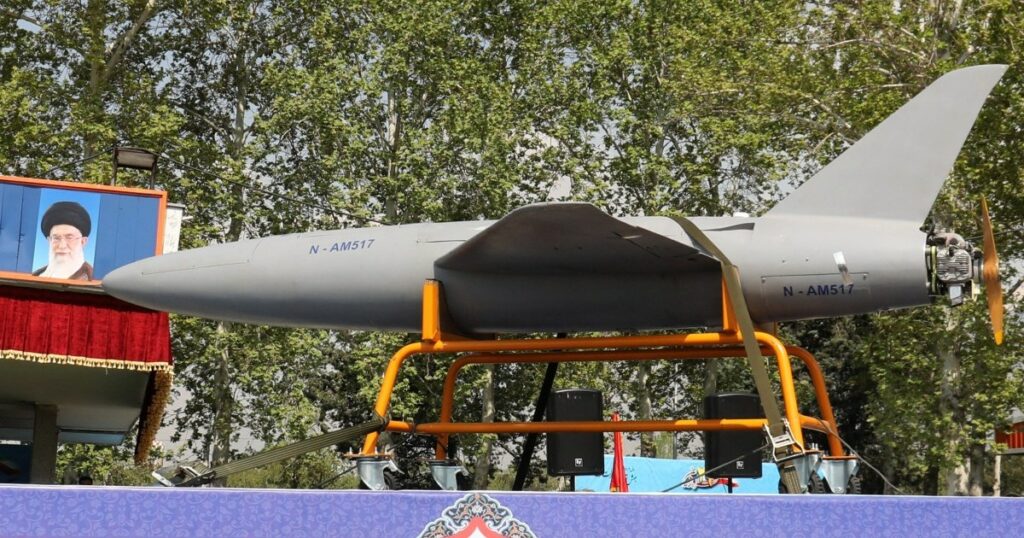US Imposes New Sanctions on Iran Following Attack on Israel
The United States has imposed new sanctions on Iran in response to its recent missile and drone attack on Israel. The attack, which took place on April 13, has raised concerns about the possibility of further escalation in the Middle East.
President Joe Biden announced the sanctions, which target leaders and entities connected to Iran’s missile and drone programs. The sanctions also focus on the Islamic Revolutionary Guard Corps, Iran’s Defense Ministry, and other government entities involved in the attack on Israel.
The missile and drone attack on Israel was in retaliation for the bombing of the Iranian consulate in Damascus earlier this month. Tensions in the region have been escalating for months, fueled in part by Israel’s ongoing bombardment of the Gaza Strip.
The Biden administration has faced pressure to curb its support for Israel amid the conflict in Gaza. Calls are now growing for the US to restrain Israel’s response to Iran’s attack and prevent further escalation.
In addition to the US sanctions, the United Kingdom has also imposed sanctions on individuals and entities involved in Iran’s UAV and ballistic missile industries. The UK Prime Minister, Rishi Sunak, emphasized that these sanctions are meant to condemn Iran’s behavior and limit its ability to destabilize the region.
Meanwhile, an official from the Islamic Revolutionary Guard Corps has warned that Iran will target Israeli nuclear sites and pursue a nuclear weapon if Israel launches strikes against Iran’s nuclear facilities. The official’s statement highlights the continued tensions in the region and the potential for further conflict.
The situation in the Middle East remains volatile, with the US and its allies working to prevent further escalation and promote de-escalation efforts. The impact of these latest sanctions on Iran and the region as a whole remains to be seen.
#imposes #sanctions #Iran #attack #Israel
The US imposing new sanctions on Iran after the attack on Israel has significant long-term implications and could lead to further escalation in the region. The sanctions target key entities and individuals connected to Iran’s missile and drone programs, indicating a clear message from the Biden administration that such actions will not be tolerated.
The ongoing conflict in Gaza, which has already resulted in a high number of casualties and a humanitarian crisis, adds to the complexity of the situation. The involvement of Iran in launching missiles and drones at Israel further complicates the regional dynamics and increases the risk of a wider conflict.
The response from Israel, particularly from Prime Minister Benjamin Netanyahu, will be crucial in determining the future course of events. Calls for de-escalation are mounting, and it is essential for all parties involved to exercise restraint and avoid actions that could lead to further violence.
The coordination between the US and its allies, such as the UK, in imposing sanctions on Iran sends a strong message of solidarity against destabilizing actions in the region. However, the threat of Iran attacking Israeli nuclear sites and pursuing a nuclear weapon in response to potential strikes on its facilities raises the stakes even higher.
In this volatile situation, it is imperative for diplomatic efforts to take center stage in order to prevent a full-blown conflict. Dialogue and negotiation should be prioritized to address the underlying issues and prevent further escalation. All parties must work towards finding peaceful solutions to avoid a devastating war.
As tensions continue to rise, it is crucial for the international community to monitor the situation closely and engage in diplomatic initiatives to promote stability and peace in the region. The US and its allies should continue to coordinate their actions and send a unified message against aggression while also exploring avenues for dialogue and conflict resolution.
Overall, the situation in the Middle East remains highly precarious, and proactive measures must be taken to prevent further violence and instability. By prioritizing diplomacy and de-escalation, there is a chance to avert a larger conflict and work towards a more peaceful future for the region.

